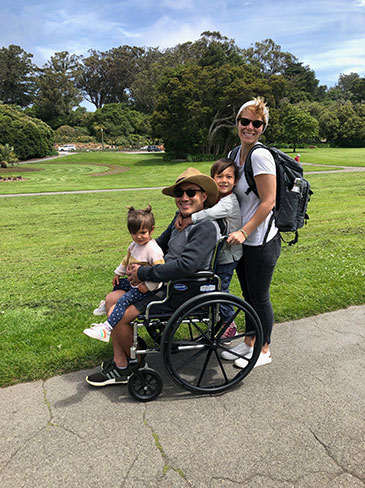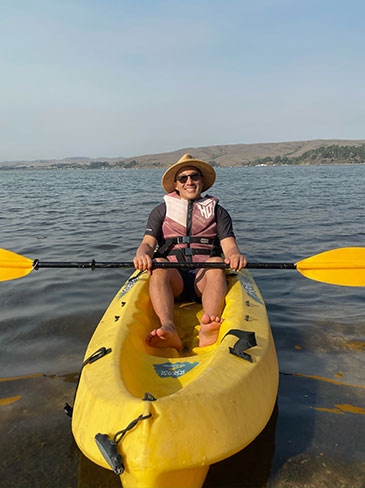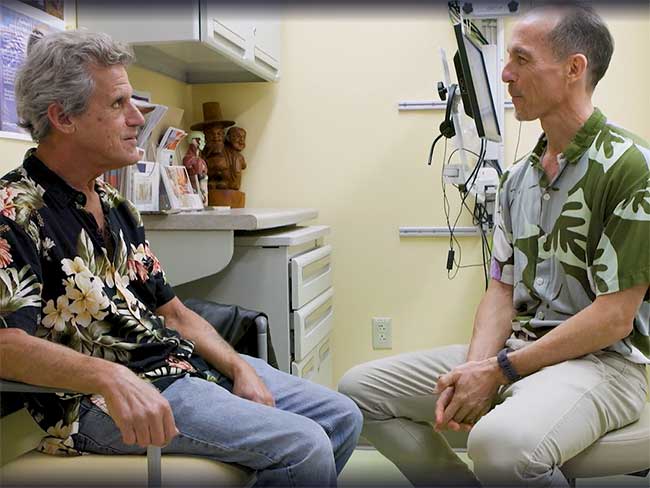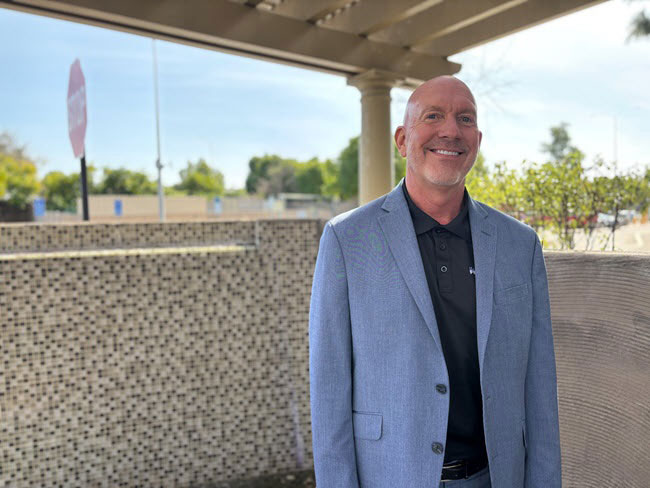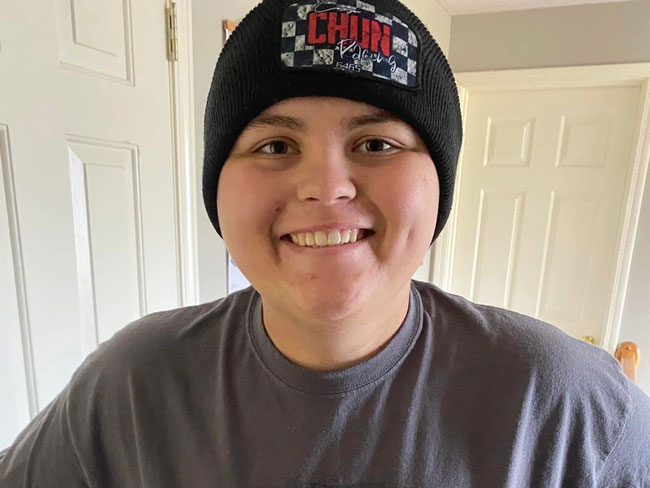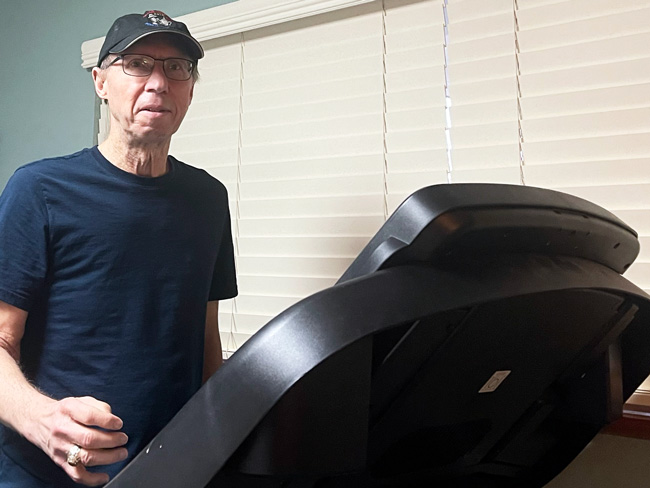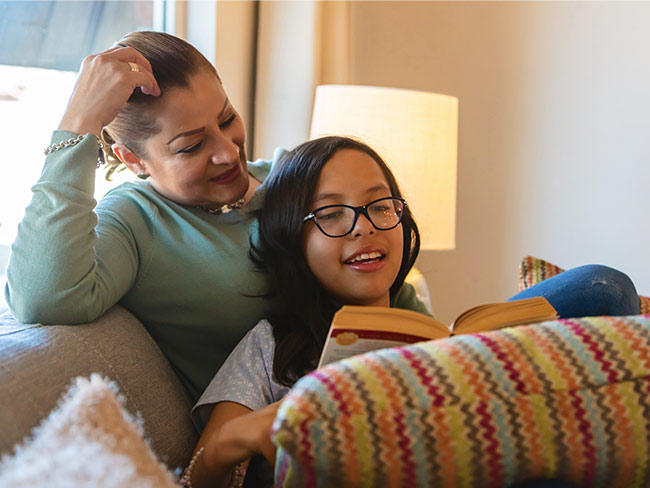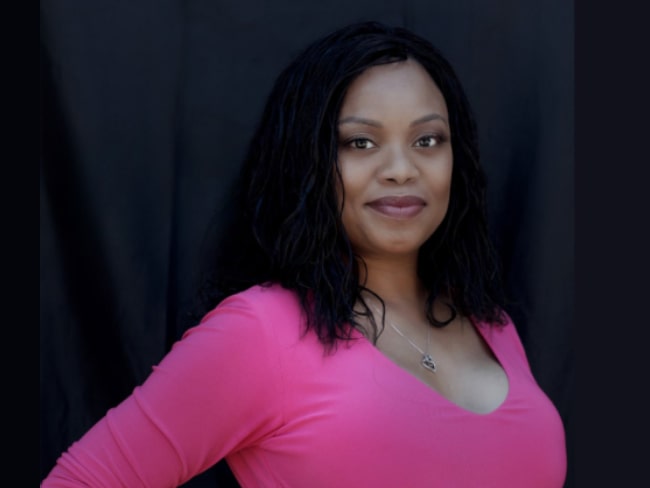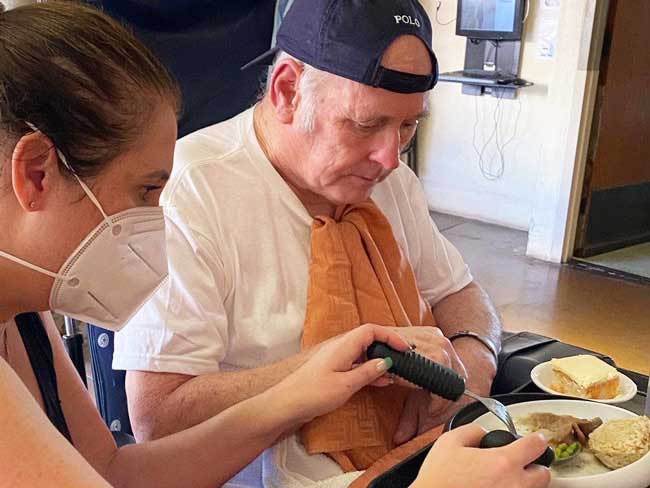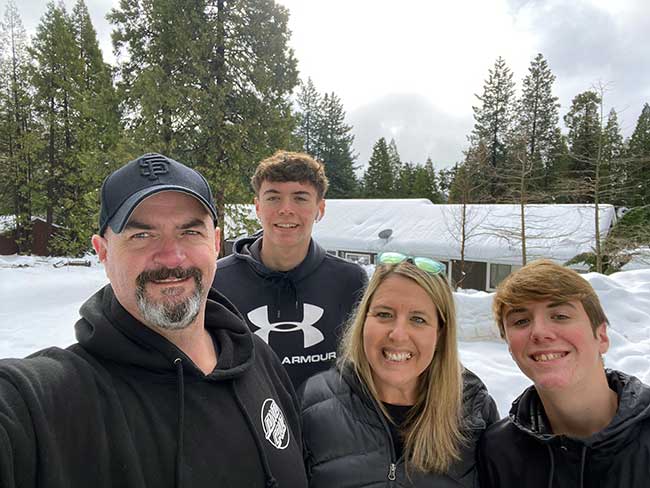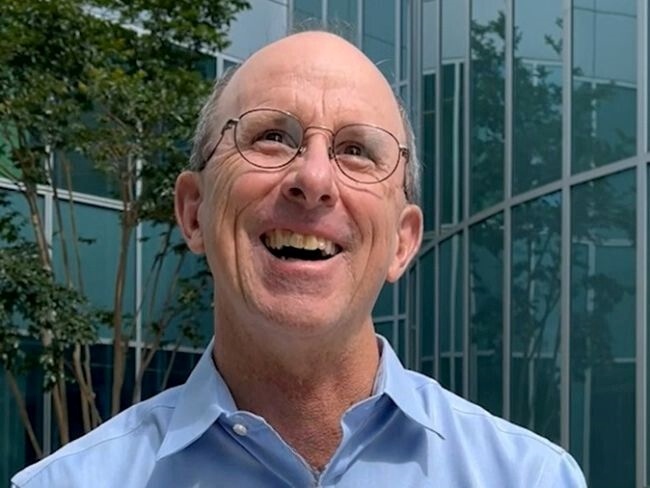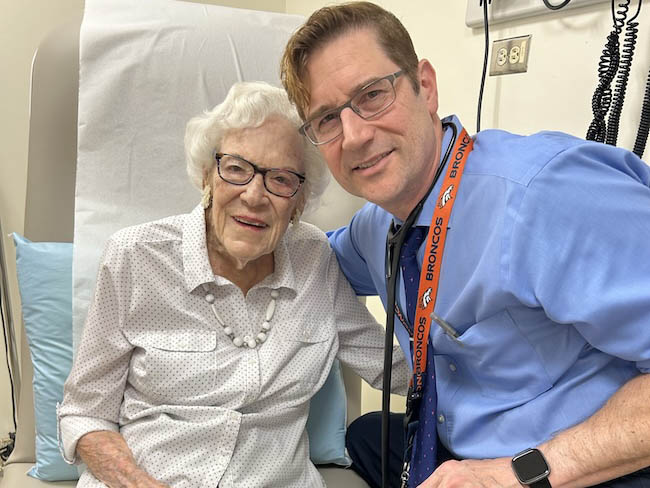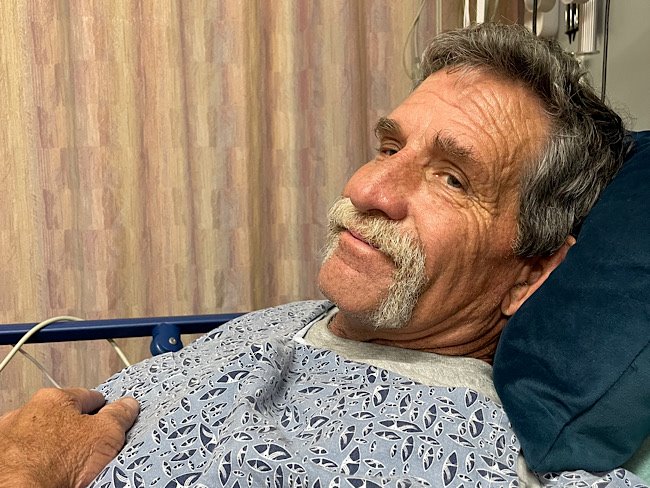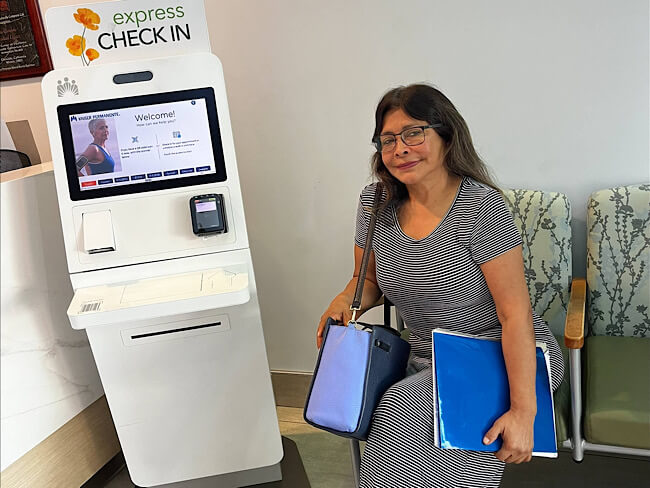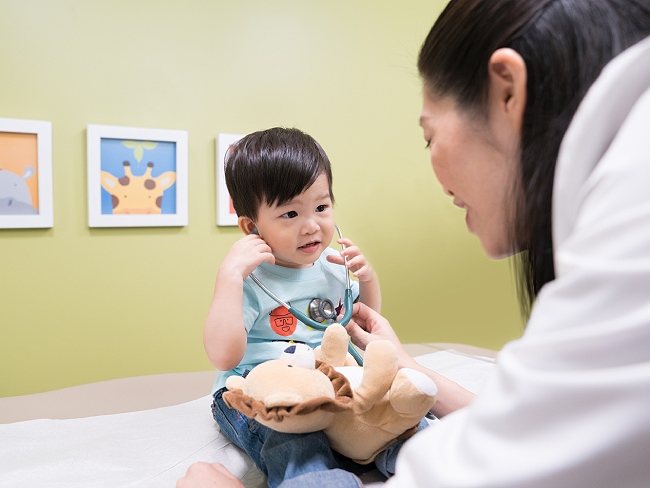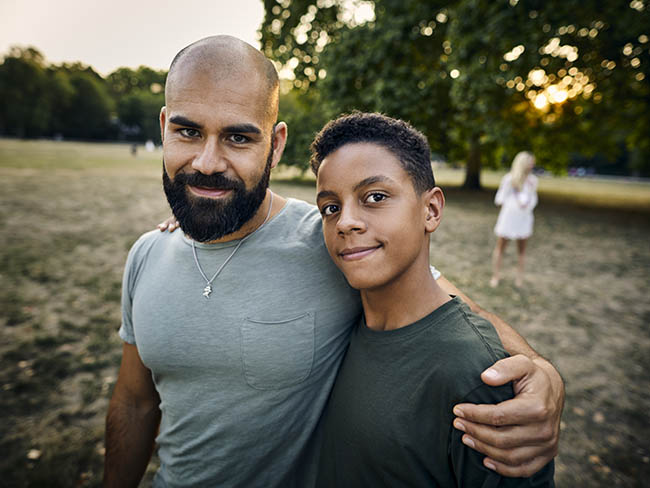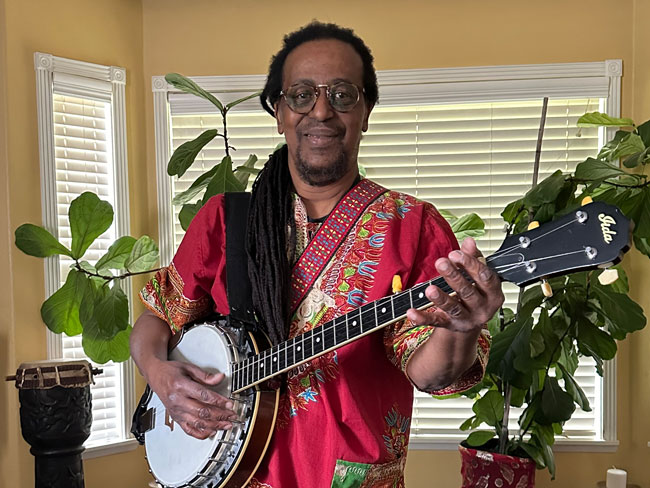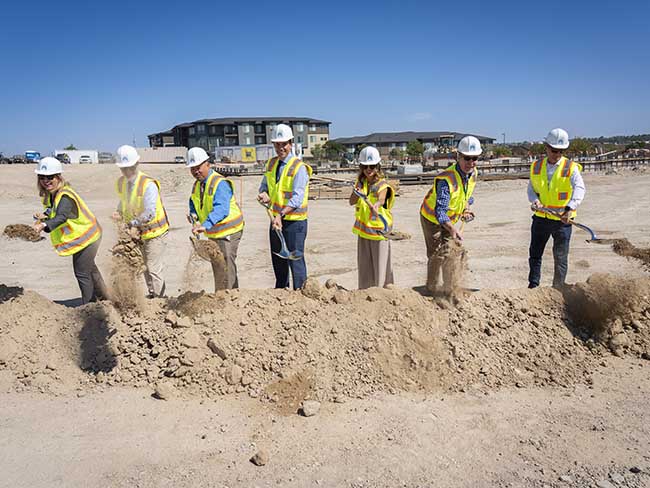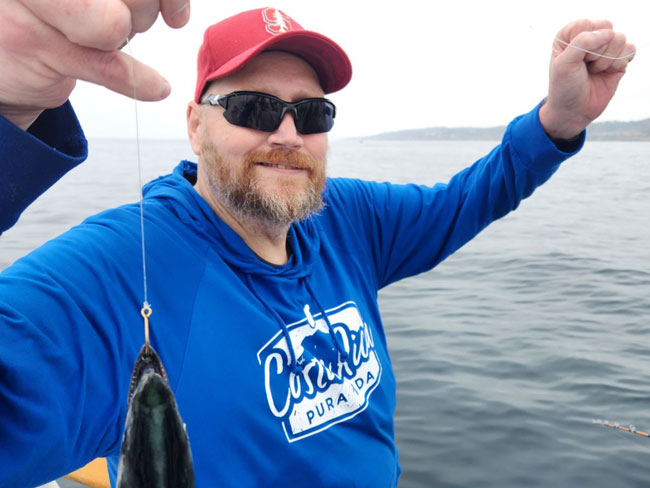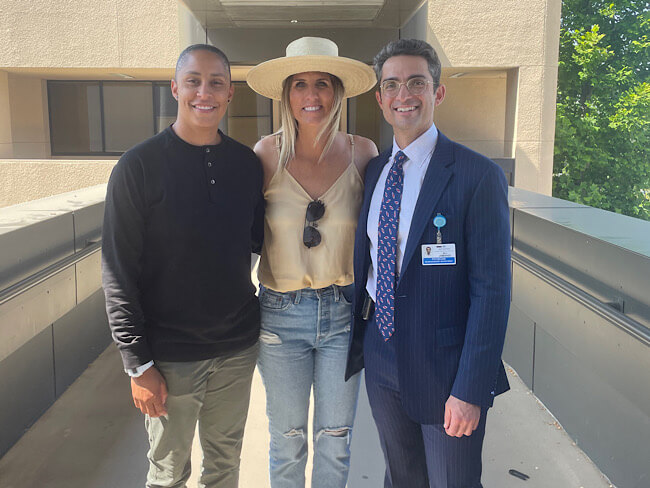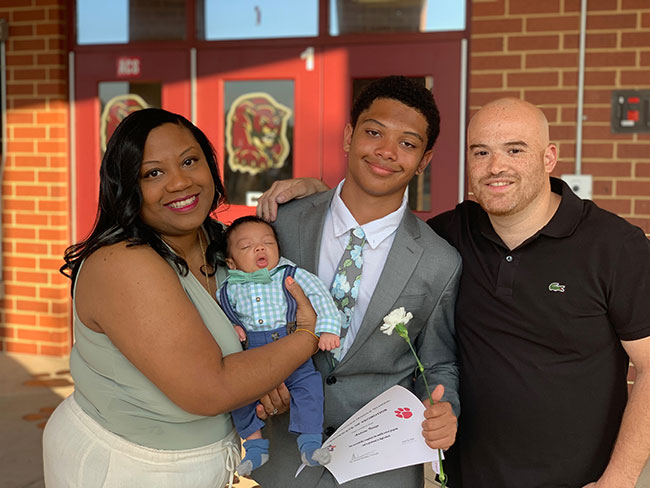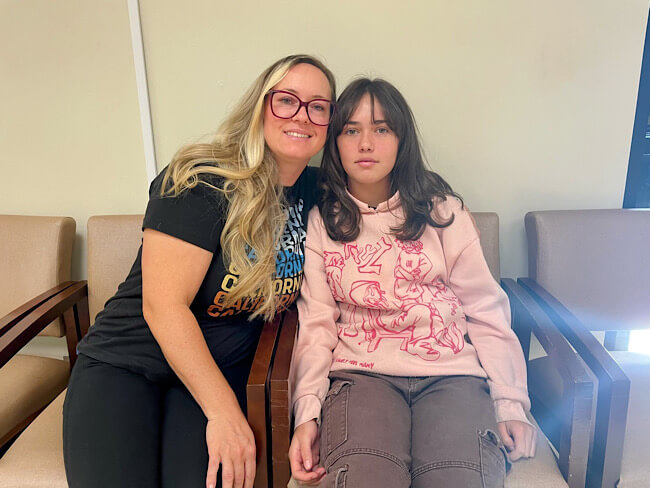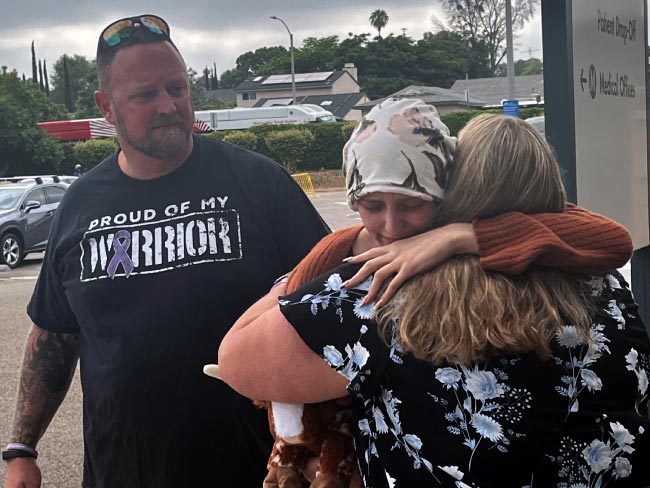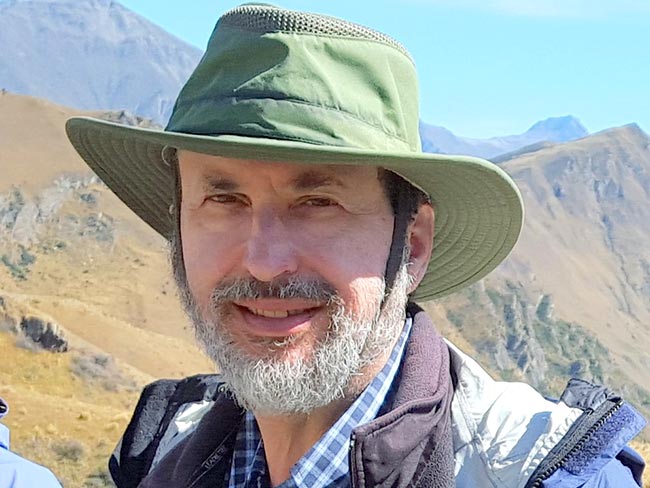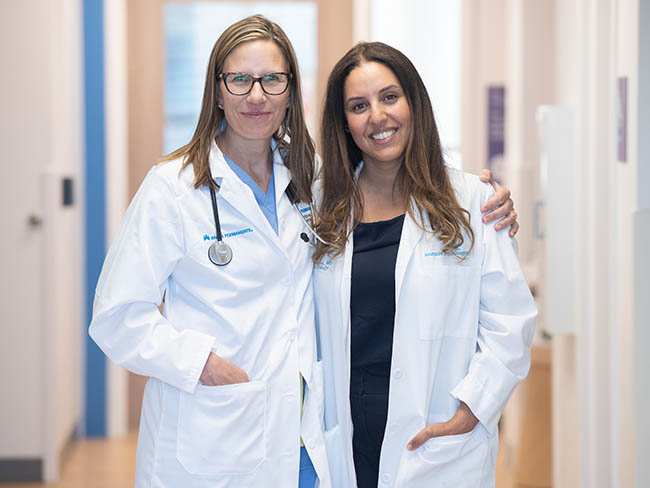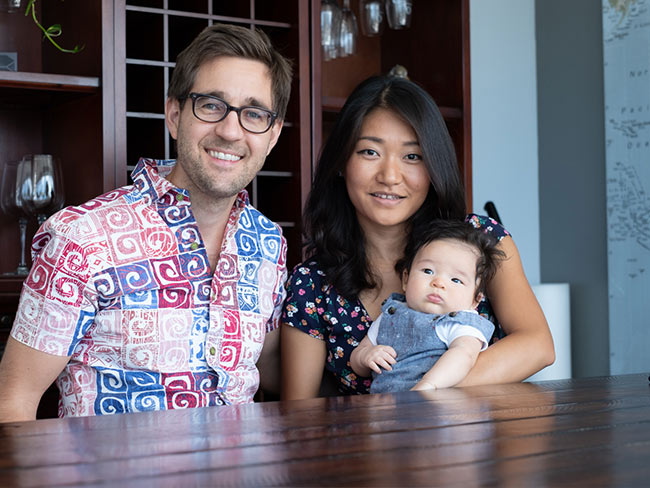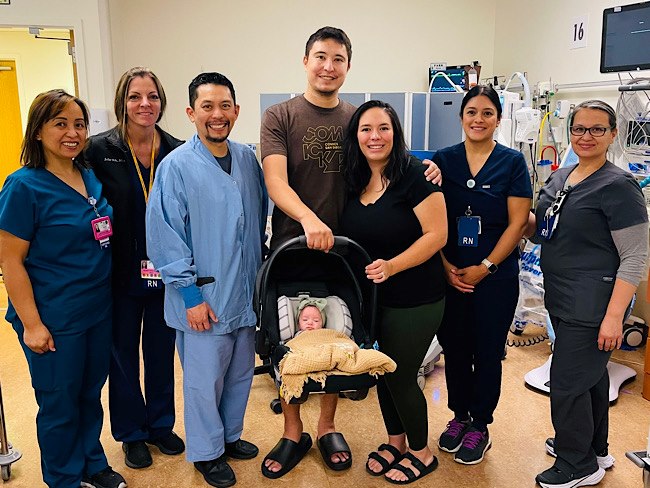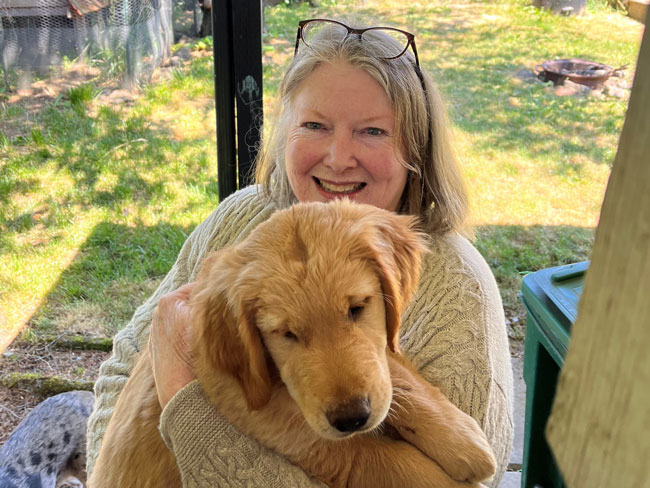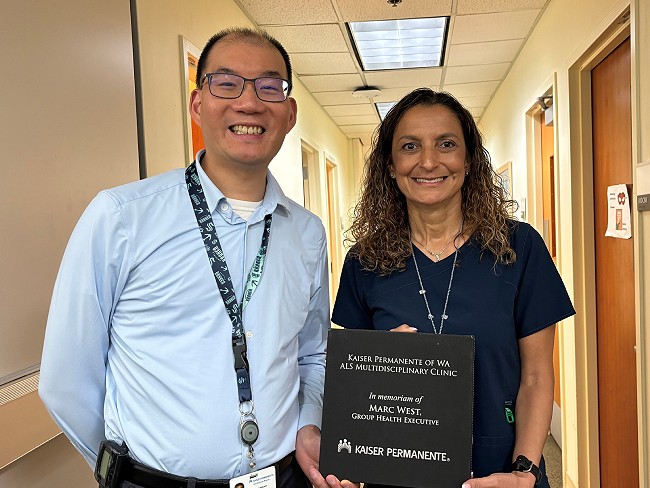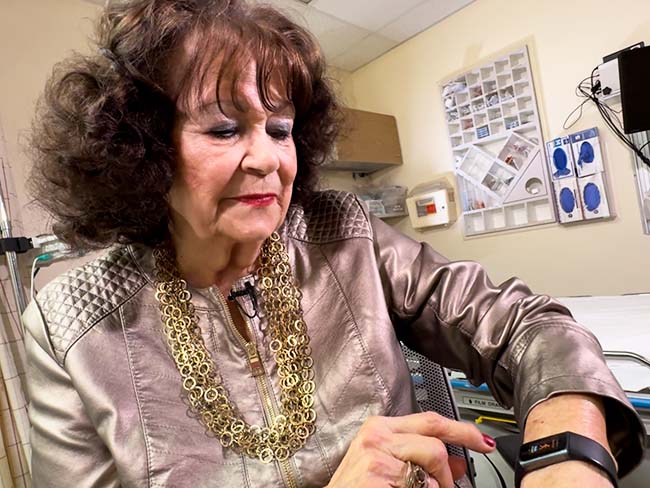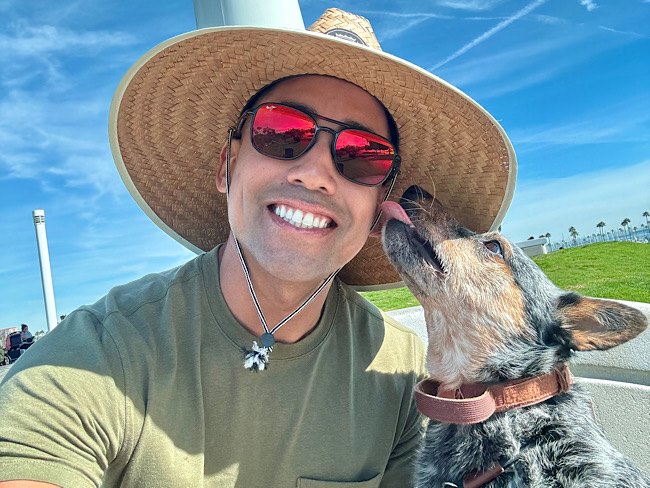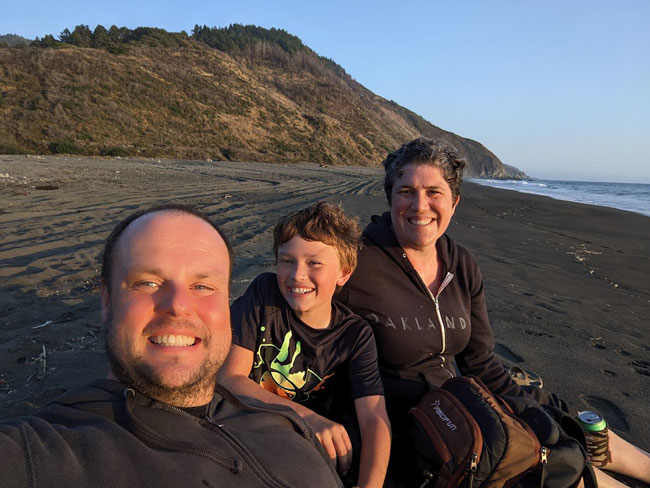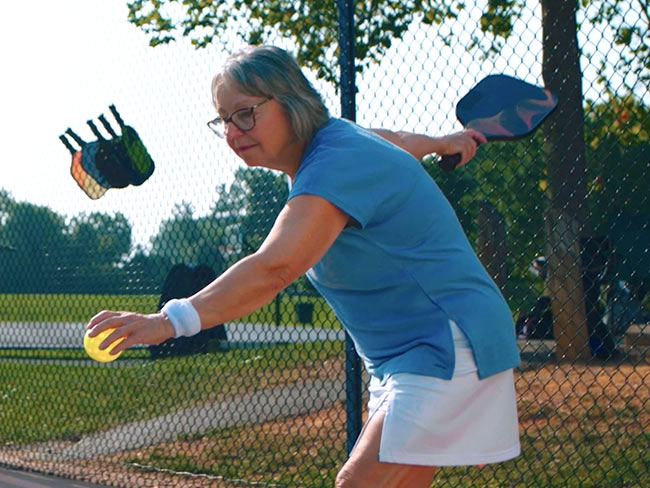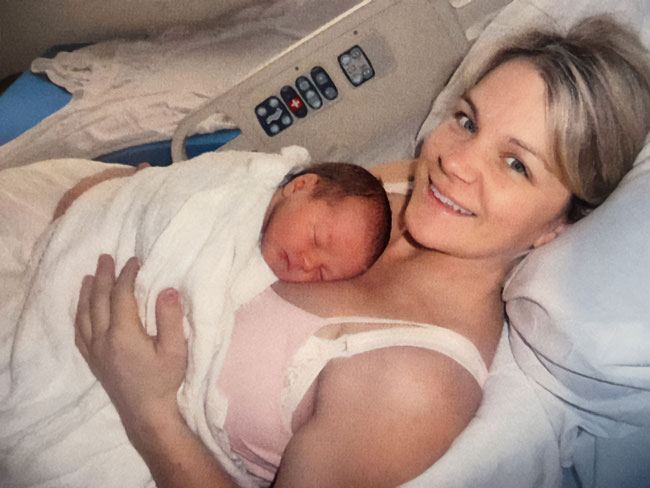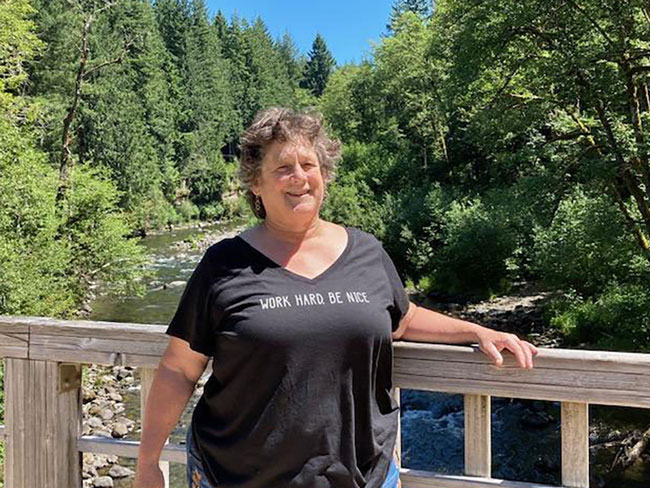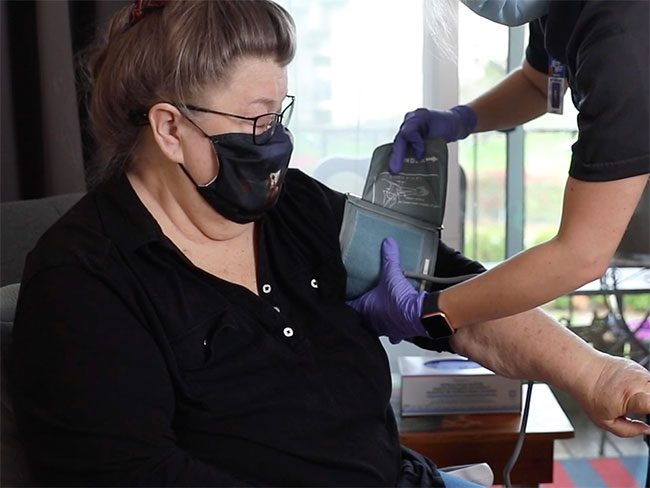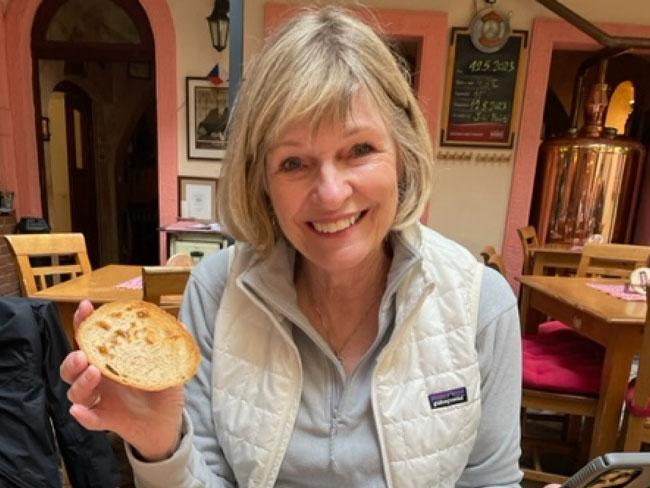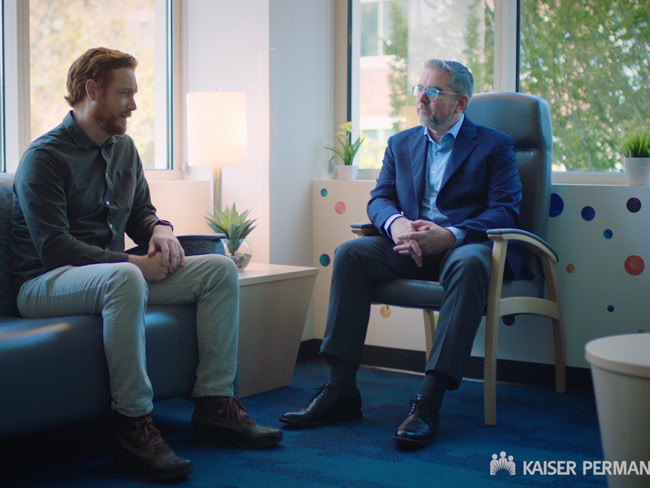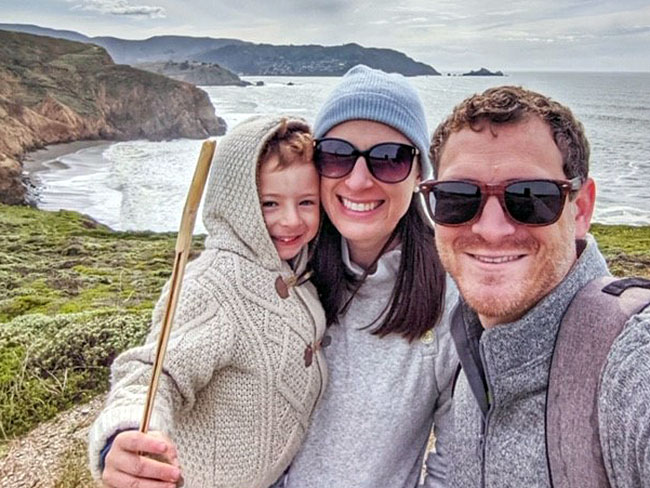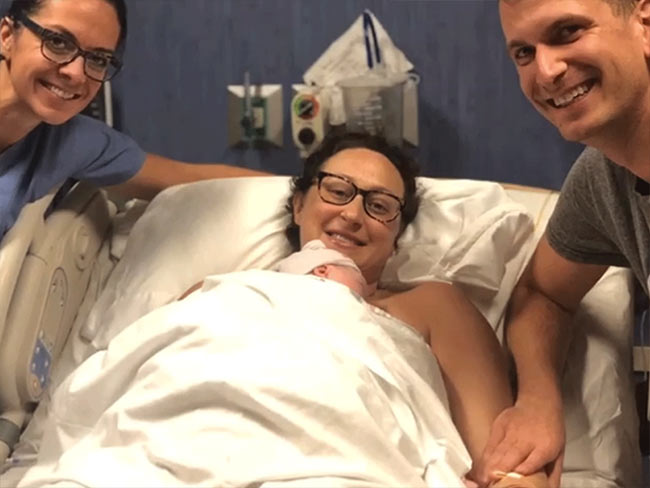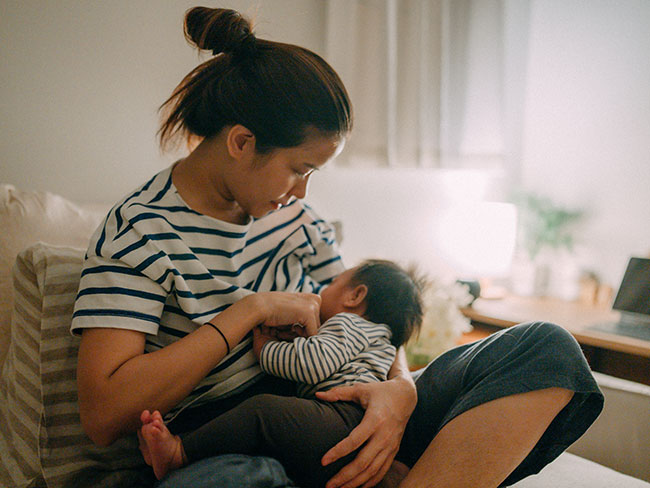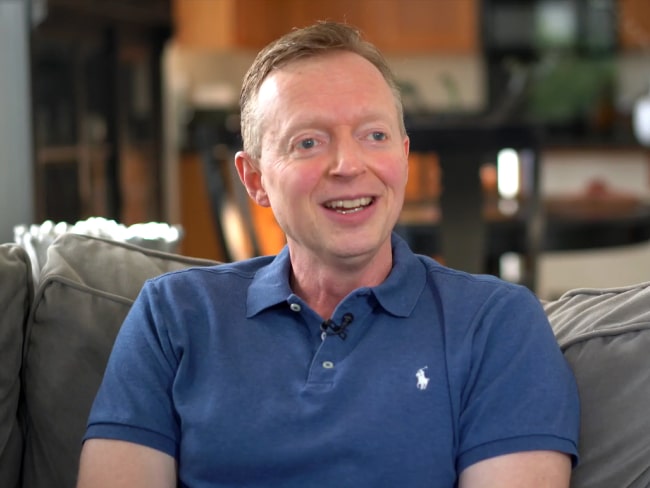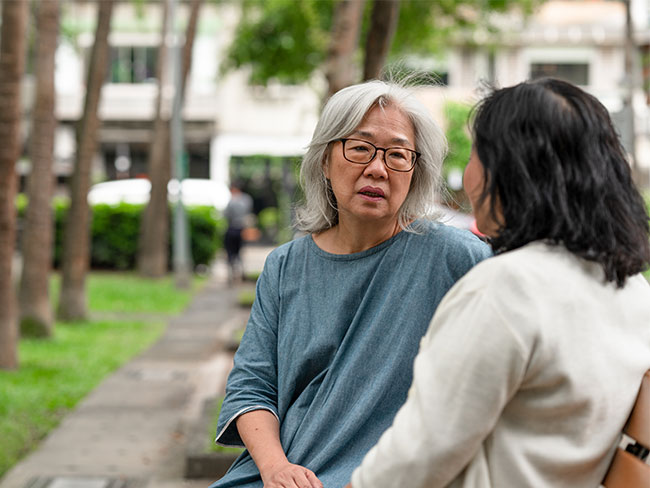Stage 4 lung cancer: A story of hope
A young father is enjoying “bonus time” with his kids thanks to new targeted cancer treatments.
Cheong enjoying some fresh air with his family as he recovered from stage 4 cancer.
Adrian Cheong has been a multisport athlete his entire life. And as a teacher from Fairfax, California, he often joins his students for pickup soccer games after school.
But in August 2018, he started to feel body aches and pain in his hips. As the school year went on, he had more and more difficulty getting around. By January, he was no longer able to play sports with his students.
“Given my athletic history, it was easy to explain away the pain as sports injuries that had never healed,” said Cheong. “I was 33 at the time, so I thought, ‘Maybe I’m just over the hill.’”
But his pain continued to get worse, and he developed a cough that lingered for months and resisted treatment with antibiotics. Maria Chan, MD, ordered a CT scan of his chest to investigate.
Cheong received a call just a few hours later. The images revealed lesions, or abnormal growths, on his lungs that Dr. Chan suspected were cancer.
Stage 4 lung cancer diagnosis
Within a matter of days, Cheong had CT scans of his hips and spine. He had an MRI of his brain.
It was a stressful time. Cheong valued how much Kaiser Permanente’s connected care model simplified the process.
“I could just show up at each facility with my membership card and they had all the most up-to-date information about me on hand,” he said. “That was a huge help for me and my wife because we could concentrate on making it to the right place at the right time.”
The scans showed he had stage 4 lung cancer. That meant the cancer had spread from his lungs to his brain, spine, ribs, and liver.
“The image of my brain looked like a Christmas tree,” Cheong said. “There were bright white spots like speckles everywhere.”
The disease had also eaten away at the bone in his hip socket and his spine. Cheong’s care team fit him for a wheelchair. They told him he shouldn’t walk or lift anything heavier than a glass of water.
“Adrian’s disease was very extensive,” said Dinesh Kotak, MD. Dr. Kotak is a medical oncologist with Kaiser Permanente in Northern California.
Targeted chemotherapy and radiation
Cheong’s doctors took a sample of his lung tumor to learn more about the changes in the DNA of his cancer cells. Genetic testing has transformed how physicians detect and treat cancer.
“We’re in an era of precision medicine,” said Dr. Kotak. “We can now test the genome of the cancer and decide the best kind of treatment based on certain mutations that we find.”
Cheong’s test results showed the cancer was a match for a targeted chemotherapy pill. That pill could effectively treat most of the cancer in his body.
There were 6 large tumors in his brain. These were better treated with a robotic device that delivers radiation with pinpoint accuracy. The device gives a full dose of radiation from many angles. It also reduces damage to the surrounding tissue.
The radiation destroyed the tumor cells and stopped their growth. Cheong’s quick-acting care team and the targeted therapies helped him keep his memory and walk again.
“The advanced procedures and medication were critical to my healing. But it’s the people behind it all that got me to this point,” said Cheong. “Without the researchers, nurses, doctors, technicians, family, friends, and community around me, I wouldn’t be where I am today.”
‘I’m on bonus time’
As the cancer receded, the bone tissue in Cheong’s hips and spine slowly grew back. After 3 months, he began standing for very short periods of time and then taking small steps. He was walking again. He returned to teaching when the new school year began in September 2019, just 4 months after his treatment began.
Today, he no longer feels pain in his hips and is back to kayaking, playing tennis, bike riding, and even playing soccer. His doctors are amazed that he’s so physically active.
His cancer is stable. He continues to receive treatment and support. There are treatment options if his cancer does return, including participation in a cancer clinical trial. These trials can provide access to the latest treatment innovations.
“I’m very aware that I’m on bonus time,” Cheong said. “I’ve thought a lot about what I’m doing with it.”
He now does a unit every year with his sixth graders to discuss his experience facing cancer. Together, they cover topics such as life, death, medicine, and society. He encourages them to ask any questions they want.
“I’ve found that being honest with my students allows us to recognize that we’re all going through difficult things,” Cheong said. “It helps us all realize we’re not alone.”
Learn more about cancer care at Kaiser Permanente.
